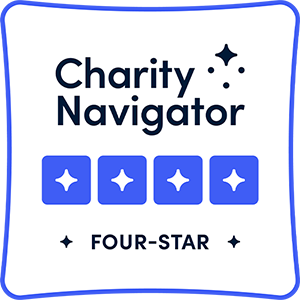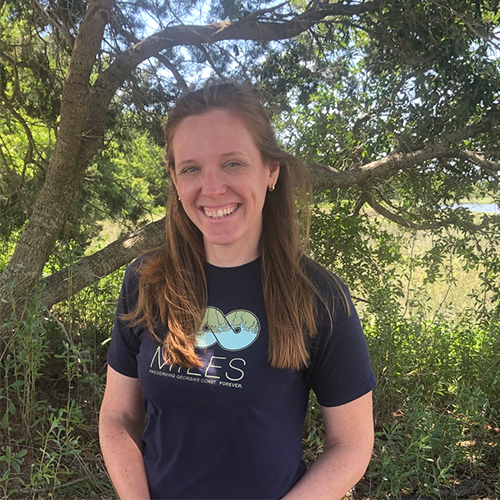Read this summary from the Atlanta Journal-Constitution describing the 2024 legislative fate of various environmental bills, including SB 132, HB 1146, and HB 1172.
From January to April, you can find OHM staff members under the Gold Dome advocating for our coast. We spend the months calling legislators to the ropes, testifying at committee meetings, and convening with our partners in the Georgia Water Coalition. We’ve been busy at work, visiting the Statehouse and working with state and local leaders on legislation to protect our coast.
Interested in contacting your legislators? Find yours in the directory of House Representatives and Senators on the Georgia legislature website.
Subscribe to our print and electronic mailings and receive the latest updates as they happen.
Water Management Privatization
House Bill 1146
Thank you to the 600+ people who took action against this bad bill! Unfortunately, HB 1146 did make it through the legislature and is on its way to the Governor’s desk to be signed into law.
ABOUT THE BILL:
The Georgia Environmental Protection Division requires any drinking water system–public or private–to define its specific geographic service area and document the estimated amount of water needed and means of distribution to it. This requirement ensures that the water system operator maintains safe and predictable distribution of the water to customers and helps communities plan for growth.
If a public water system is not available or does not have adequate capacity for a new development, private community systems may be created or expanded to meet needs. Currently, private water providers may provide water services to a limited geographic area, must request approval from the local government to operate in a new service area, and are required to use all their permitted water capacity within the limited, mapped service area.
HB 1146 (R. Stephens, R – Savannah) would allow private water utilities to outcompete public water utilities, bypass consistency with local government planning, and sell their access to Georgia’s limited drinking water supply to the highest bidder. These are our concerns.
Okefenokee Protection
Senate Bill 132
(House Bill 71 / 1338)
In 2018, Twin Pines Minerals, LLC, submitted an application to the Georgia EPD to secure permission to extract titanium through heavy mineral sand mining along the eastern boundary of the Okefenokee Swamp known as Trail Ridge.
Trail Ridge is an ancient coastline running parallel to our coast and serves as the natural barrier that keeps water in the swamp. From the beginning, OHM has worked to prevent this permit from being granted. If we are successful getting the Twin Pines permit denied, land on Trail Ridge will still be open to future mining threats.
A number of “Okefenokee protection” bills moved through the legislature in 2024: HB 71 (“The Okefenokee Protection Act”), which OHM supported; HB 1338, which OHM strongly opposed; and SB 132, which OHM believed wasn’t the protective compromise it claimed to be. None of these bills managed to pass. Scroll to learn more about each.
HB 71: The Okefenokee Protection Act
In spite of the strong bipartisan support for House Bill 71 (“Okefenokee Protection Act”), the bill stalled. We are still hopeful for future legislation that will protect the ecological integrity—not to mention its economic and cultural value—of the Okefenokee from future mining projects.
HB 1338: A Destructive Distraction
House Bill 1338 was introduced to the legislature a week before Crossover Day (2024). The bill would have instituted a 3-year moratorium on “new permits for surface mining utilizing dragline mining for 16 heavy mineral sands in areas for which no prior surface mining permit has been obtained,” including Trail Ridge and the Okefenokee Swamp. This bill was problematic for a number of reasons. It distracted from the real work of protecting the Swamp.
The public raised cane about HB 1338, calling and emailing their legislators. Because of the pushback, this bill never made it to the House floor for a vote. Y’all killed this bad bill!
SB 132: An Innocuous, but Meaningless, Moratorium
SB132 was a short-sighted, watered-down bill that is an attempt to trick the public into thinking the swamp is safe. While OHM is supportive of a moratorium on mining to protect the Okefenokee Swamp, we did not believe that SB132 would implement a meaningful moratorium with lasting benefits.
We were concerned about two key bill provisions in particular: First, the moratorium would only prohibit new applications for dragline mining, a type of mining that is not currently utilized by any company in Georgia. Twin Pines has applied for a dragline mining permit on Trail Ridge. Second, the bill contains a loophole that could have allowed Twin Pines to avoid the moratorium altogether. Despite a three-year moratorium on new dragline permit applications, the bill would allow for modifications to existing permits or permit applications submitted or granted before June 30, 2024. Therefore, even if SB132 passes, this dangerous loophole could allow them to amend their permit or permit application to include the entire 8,000 acres the company plans to mine.
For more than five years, OHM has worked in good faith with hundreds of community members and coalition partners to prevent mining from harming our Okefenokee Swamp. We are committed to continuing the fight and instituting lasting protections for the Wild Heart of Georgia.
Crown Grant Salt Marsh Bill
House Bill 370
A bill originally introduced into the Georgia House last year was resurrected this legislative session. Because of the hard work of our partners at the Capitol and hundreds of advocates like you, HB 370 did not make it to the House floor for a vote and is dead!
If passed, HB 370 would have made it easier to privatize Georgia’s salt marsh. Currently, the State of Georgia owns all of the salt marsh on our coast unless a landowner can prove that he or she holds an in tact Crown Grant from the King of England.
While a few crown grants still exist, any new claims to having a grant to our salt marsh must be verified by the Georgia Attorney General. Crown grant certification by the AG can take 3-5 years. This is because 250 years of documentation is understandably difficult to decipher, comprehend, and verify.
Further compounding the issue, nearly all crown grants contain unique stipulations which, if violated, nullify the grant. Examples of the stipulations include sustained rice cultivation, livestock grazing, and a commitment that all generations of male family members serve in the military. Hence, today private ownership of marshland is rare.
While we are all for private property rights, it is in the best interest of all Georgians to only give our ownership of salt marsh away when there is absolute certainty that the private rights exist. This bill shifted the burden of proof away from the petitioner and onto the state, forcing them to make irreversible decisions in an unreasonably short period of time (180 days). If the state failed to meet these shortened deadlines, the Kings Grant would have been certified by default.
Thank you for helping kill this bad bill!
Environmental Justice
House Bill 491, 495 & House Resolution 255
House Bills (HBs) 491 and 495 are mirror bills with similar goals and language, both aimed at environmental justice. The HBs establish a new corporate pollution evaluation process, including the creation of an Environmental Justice Commission and requiring Environmental Justice Impact Statements. The commission—comprised of 20+ people from agencies, departments, organizations, and communities all over the State—would have the authority to demand information (such as permits and emission data) from private entities in order to evaluate certain operations’ impact on public health.
House Resolution (HR) 255 requires any corporation applying for air or water discharge permits to conduct an Environmental Justice Impact Statement (EJIS). This would be in addition to the Environmental Impact Statement already required by federal law. The State-mandated EJIS would require applicants to disclose, for example, what chemicals will be released as part of their operation and how the discharge of those chemicals will impact public health.
All of these bills are currently stalled in the House. Even if these don’t pass, they provide great language and potential frameworks for local legislation in future.
Plastic Bag & Styrofoam Ban
Senate Bill 49
Senate Bill (SB) 49 would ban plastic bags and polystyrene at all non-exempt establishments, effective January 2026. Violation of the law would be a misdemeanor. Currently, this bill has been assigned to the Natural Resources and Environment Committee.
Every year, a legislator introduces a plastics ban bill. So far, no bill of its kind has been passed at the State level, though there are some municipalities around the State (none on the coast) that have passed local ordinances to decrease or ban the use of single-use plastic.
We encourage you to speak up at the local level in support of plastic bag and styrofoam bans. A bill like this needs grassroots efforts: local communities and decision-makers demonstrating that the people are in favor of these bans. This could create a “trickle up” effect to push the legislation at the State level.
Sapelo Island Heritage Authority
House Bill 273
House Bill 273 directly impacts the historic community of Hog Hummock on Sapelo Island and the Sapelo Island Heritage Authority (SIHA) that was created to hold land on Sapelo in the interest of preserving the island’s Gullah Geechee culture and environment.
The bill, written by Rep. Buddy DeLoach (with no consultation to the people of Hog Hummock), seeks to change the composition of the SIHA board. Three NGOs on Sapelo—the Hog Hammock Community Foundation, SOLO, and SICARS—spoke out in opposition to the bill, as the language used was not specific enough.
These organizations proposed changes that would protect the descendants of Hog Hummock from disenfranchisement and assure they have a say in important decisions. They asked that “resident” be clarified to “resident descendant” and that the governor appointee to the board be an elected official or state authority to ensure accountability to the people. Both amendments passed through the Senate. When the bill reached the House, the latter amendment was removed. Due to this change, the bill failed to pass during the 2023 legislative session.
HB 273 is currently sitting in the Senate. We are working with current members of the Sapelo Island Heritage Authority on next steps, ensuring a bill that is comprehensive and inclusive of the members of Hog Hummock Community.











